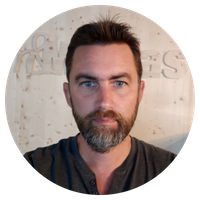
Audencia's Alumni Magazine
#18 - December 2021 - 18#
Edito
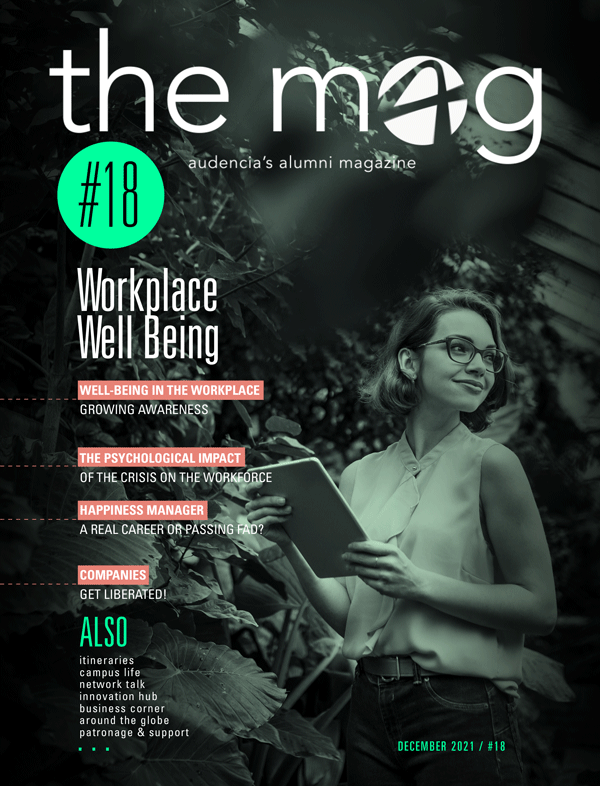
"In these pandemic times, with a heightened awareness of the disruption being caused to our planet and the heralding of major ecological and social crises, the theme of well-being may appear both superficial and essential.
Superficial in regards to evoking the pursuit of ephemeral individual well-being.
Essential when it comes to redressing the balance, being true to oneself, driven by a common sense that transcends us and connects us to others and also our environment.
In its ECOS 2025 strategic plan, Audencia drew up practical plans in its resolve not only to be amongst the best schools worldwide but also to be a better School FOR the world.
As this year draws to a close, our hope is to share with as many alumni as possible this ambition of contributing towards the greater good. Please feel free to share with us all your achievements by writing to your Alumni team here at: audenciaalumni@audencia.com
Be inspired by the testimonials and advice given by alumni and school representatives on this notion of well-being.
I’d like to wish each and every one of you a festive season with a particular focus this year on personal and collective well-being. Happy reading!"

Françoise Marcus, Director of Corporate and Alumni Relations
Well-being in the workplace: growing awareness
.jpg)
Employees seeking a balance between their personal and professional lives are now making workplace well-being a central consideration in their career choices. For the best part of two centuries this notion has continued to evolve.
The very first thinking on the improvement of working conditions goes back to the mid-19th century, at the height of the industrial revolution. The emergence of labour law accompanied the initial measures aimed at protecting the most vulnerable workers, particularly women and children. However, it wasn’t until 1898 that the state would impose a legal regime relating to employer liability, granting compensation to employees in the event of an occupational accident.
Reaching beyond the scope of corporal risk prevention, the question of workplace well-being arose with the onset of Taylorism. At the dawn of the 20th century, there was already a growing sense that a happy employee made for a more productive worker. In the aftermath of the Second World War, with the social measures taken by the Popular Front government during the 1930s still fresh in everyone’s mind, workplace well-being became a genuine field of research. In 1947, the French National Research and Safety Institute for the Prevention of Occupational accidents and Diseases (INRS) was set up, followed, inter alia, by France’s National Agency for the Improvement of Working Conditions (ANACT) in 1973, and then the Auroux laws enacted in 1982.
Up to this point, the onus had well and truly been on ensuring the physical well-being of employees, however, since the end of the 20th century the protection of a worker’s mental health has clearly come to the fore in public debate. Passed in 2002, the Social Modernisation Act serves to hammer this point home:
it stipulates that “the employer shall take the necessary steps to ensure the safety as well as the physical and mental welfare of all employees.”
From here on in, taking employee well-being – in the broadest sense of the term – into account has become a necessity. With coaching, personal development seminars, the emergence of chief happiness officers, and indeed sports facilities, yoga sessions and tabletop football freely available, there is no shortage of ideas to woo employees with an increasingly pleasant work environment. At times, this is to the point of disregarding the source of psychosocial risks present at work: the practical organisation of how teams work together, the defining of tasks, the sharing of the workload and also working relationships with colleagues and the hierarchy. To avoid this pitfall, initiatives are being developed and are flourishing, as can be seen in a “liberated” company, of which its ambassadors feel on safe ground when talking about the possibility of happiness at work.
Philosophy also has its role to play. In 2016, during a conference held at the University of Geneva on the subject of happiness at work, the philosopher André Comte-Sponville granted that while the quest for happiness at work sets the bar too high, in his view workplace well-being, all too often reduced to a purely physical dimension, is setting the bar too low. Henceforth it would be more appropriate to refer to living well at work and perhaps over the course of the 21st century we are set to see great strides being made.

Guy-Pierre Chomette, Editor
The psychological impact of the crisis on the workforce
.png)
Faced with the crisis, let’s do away with depression and make way for well-being!
It’s a fact: the health crisis has taken a toll on the psychological health of employees. Here are a few tips you can follow to help boost you through the crisis.
"Yes, the crisis has certainly had an impact on staff health and well-being,” states from the outset Aurélien Guihéneuf (SciencesCom 06), who has been practicing hypnotherapy in Paris for the past three years now.
Some may experience teleworking as a long period of confinement, with feelings of isolation, having to cope with corporate restructuring and new management practices and fearing losing their job for instance, as well as screen-related mental overload etc. These unprecedented times are clearly leaving their mark on employees.
In addition, there will likely be lasting consequences, according to Claire Delpech (GE 06), who is a practicing Gestalt therapist.
“We have now moved into the third phase. It’s important to remain vigilant during this period,” highlights this Paris-based practitioner in psychology, arguing that the crisis may not only have triggered but also exposed some of the existing imbalances.
So, what are the top tips?
Taking on new habits might help turn things around. According to Aurélien, a good starting point is getting to know yourself better, thus enabling you to understand exactly where you fit in with your company. This involves “performing a kind of introspection: monitoring one’s own unsettling schemas of thought patterns and behaviour, together with their associated emotions and feelings, so as to seek a way to improve them,” he explains. A further tip: getting back your sense of time. In other words, “letting time go by without doing anything”. This enables the mind to work on creativity and memorisation, and finding any disconnected sources of pleasure, such as reading or sewing etc. It’s also important to set time aside for breaks.
Faced with employees who find themselves exhausted after 20 long months of the ensuing health crisis; sleep is all the more vital. Aurélien recommends keeping a “thoughts notebook” to jot down what’s worrying you prior to going to bed.
“This is stored away outside the bedroom and isn’t intended to be read or reread but is a purely symbolic way of leaving your work-related thoughts away from your bed.”
As for Claire, she advocates the importance of allowing oneself to plan for better days ahead, such as organising a trip. She terms this “positive anticipation”. She also accentuates the need to take special care of relationships. When entering a relationship, be that with yourself or someone else, bear in mind these three keywords: “presence, benevolence, and awareness”. This also applies to the body. Therefore, in her eyes, it’s necessary to expose yourself to as much sunlight as possible, especially in winter. The aim is “to ground yourself by staying connected with your body and work on all five senses, helping you manage your emotions more easily.” Finally, to help you move forward, Claire explains that this crisis may equally be the source of some wonderful new opportunities.

Florence Falvy, Editor
Happiness manager: a real career or passing fad?
.jpg)
A candid and non-sugarcoated response from Noémie Jamin (GE 05), Head of Communications, Happiness and Development at Greenaffair who, for the past twelve years, has been relentlessly challenging the triple bottom line of organisations with respect to economic, social and environmental performance alignment.
“Much like everyone else, I started out in mass marketing,” Noémie begins. “Not long after, I found myself searching for a deeper meaning and so joined UNICEF as their head of corporate partnerships. Collaborating with our patrons and working on their staff’s involvement enabled me to truly grasp just how much of a positive impact our alliances have and it enabled me to step back and breathe again, aside from the day-to-day job, thanks to a shared higher cause.”
Then, in 2017, Noémie went on to join Greenaffair, a company on a human scale, invested in the sustainable transformation of cities, industries and firms. Their management team seeks to reconcile its core values with staff attachment to the company: thus, a cross-functional post, halfway between HR, communications and strategy was created, with the post reporting directly to the CEO and getting a seat on the Management Board.
“This top position, with a wide-angle view, is a prerequisite for success,” explains Noémie. “Our manageable size certainly makes things easier: there’s no working in silos and a genuine 360°-degree view on matters with a firm foundation set on all four pillars. My current role goes from HR, with recruitment, staff integration, and mentorship, right through to in-house communications including events planning and also coming up with approaches for our collaborative projects.”
The infamous tabletop football contests that helped in popularising the profession, is in fact of minor interest. Noémie’s main mission is to promote a shared DNA in a work environment which actively fosters professional growth and fulfilment.
“I’m here to pick up on weak signals and then take any appropriate action, to create the necessary conditions in which each staff member feels invested, truly valued and able to perform to their full potential. Companies can no longer disregard the personal and societal concerns of their employees who no longer hold back on opening up a dialogue on subjects that were formerly outside the professional realm.”
All the more reason to strengthen the position of these happiness managers, earning their stripes as true contributors to in-house transformation and facilitators of a collaborative and invested enterprise.

Florence Alix-Gravellier, Editor
Companies, get liberated!
.png)
Alexandre Gérard (Bachelor 94), advocate of the liberated company, made this radical shift for the companies in his Inov-On group at the end of the noughties. He reminds us here of the fundamental principles underlying this managerial practice that is akin to a true philosophy.
Could you sum up in just a few words what a liberated company is?
Alexandre Gérard: Simply put, in a conventional organisation the management uses a command & control type of approach to look for a desired result. In a collaborative organisation on the other hand, the aim of the management is to create flourishing teams. The more teams flourish, the more invested they feel, which in turn makes for improved business agility. It is on this condition that a result is obtained, so it can therefore be seen as more of a consequence than an objective. There’s a significant difference.
What are the levers a manager can use to bring in this type of approach?
Alexandre Gérard: I’d say there are three. Firstly, make sure to favour the Pygmalion effect within the company (higher expectations regarding team performance lead to improved team performance) over the Golem effect, where the opposite is the case. Secondly, create the necessary conditions for teams to flourish by nurturing an inherent sense that people are treated equally within the organisation, allowing staff to grow and reach their full potential and by encouraging teams to work under their own initiative, that is to say by leaving them in peace to get on with their work, and by trusting and believing in them. Thirdly, don’t tell them, but do your best to embody the situation you’re aiming for. Announcing the transformation is a mistake as this will generate immediate opposition. Well done is better than well said! In short, the management is there to create the conditions which ultimately unleash this flourishing and are not there to manage the flourishing itself. The distinction here is key. For this reason, I feel rather uneasy with the term chief happiness officers!
Does collaborative philosophy have a future?
Alexandre Gérard: It is likely the only possible future! According to the acronym invented by a colonel in the US army to describe a battlefield, the world has become VUCA (which stands for Volatility, Uncertainty, Complexity, and Ambiguity). Five years ago, who could have predicted Trump becoming president, Brexit happening, the rise of Elon Musk, the Covid crisis, the current shortage of semiconductors and so many other things. Now, what is the number one quality of a company in a world such as this? It’s the ability to adapt. To meet the challenges of an ever-changing world where the pace of change is unrelenting, corporate agility is paramount. Those are too pyramidal, centralised and bureaucratic have every reason to be worried. On the other hand, collaborative setups that are highly agile, will probably prove the successful organisational model of choice in the coming years.

Guy-Pierre Chomette, Editor
Audencia takes care of the health and well-being of its students
.jpg)
Student well-being is at the very heart of all we do here at Audencia. To meet this challenge, the school has designed and piloted a comprehensive plan called “Be Well” Here, the school nurse Maëlig Le Dû takes us through the measures currently rolled out at the school.
"As of October 2020, there have been dedicated health-care spaces on each of our Audencia campuses. Our programme directors had been calling for this to happen for some time, and the COVID crisis helped speed things up," Maëlig explains.
During the week, the school nurse travels to Audencia's three campuses, meeting with students and running various workshops related to health and wellness. “The ultimate goal is to create health-promoting environments within the school.”
A customised service
"Of course, I provide students with an individualised response to their personal questions related to their own health and also when they require specific assistance. I’m thinking in particular of newcomers to Nantes who are looking for a GP or a specialist doctor, which isn’t always a straightforward procedure. The students also benefit from our partnership with the University Service for Preventive Medicine and Health Promotion (SUMPPS), which comprises a multidisciplinary team of professionals: GPs and specialist doctors, psychologists and nursing staff. This system allows staff to respond quickly to requests, and in particular enables them to access the free psychological counselling sessions granted by the government."
Workshops
To raise student awareness, the “well-being” team also puts on health and wellness workshops, covering a wide range of themes:
"we discuss anything from healthy eating, disability and sexuality to partying safely. For each session, we regularly call in the specialist associations to take part in the chosen workshops."
Stress management is always a subject high on the list of student priorities, particularly during exam time.
"In November, we set up a series of modules to improve daily learning and also ran sophrology workshops; they were all fully booked! Our aim is to mobilise an ever-greater number of students by collaborating with them and building the workshops together, so they feel invested and share on these subjects."
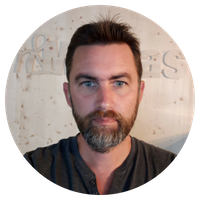
Jordi Soudé (SciencesCom 07), Editor
The Audencia Grande Ecole Programme, in DNA+ Mode
.jpg)
An enhanced DNA programme. Such is the ambition of Audencia’s new model for its Grande Ecole Programme, that is now being redesigned within the framework of the school’s ECOS 2025 strategic plan, heralding a return to the original four key pillars of differentiation: hybridisation, responsibility, internationalisation and the pioneering spirit.
“The aim here isn’t to be become the best school in the world, but rather be a better school for the world and be regarded as such in both the national and the international arena,” stated Christophe Germain, the Dean of Audencia back in February this year, at the launch of the ECOS 2025 plan.
A determination that is already visible in the model for the school’s flagship programme, the G.E.P., which has undergone a profound change in recent months, whilst remaining firmly anchored to its enduring strength and originality over recent years.
ECOS, ancient Greek for ‘our house’, or ‘the Earth’, sets the goal of being a responsible school, training students to meet the societal challenges of the day, applied to the professions and business lines of each individual. Henceforth, 100% of students on the G.E.P. will spend part of their studies at Gaïa, our in-house school for ecological and societal transition. They will follow technical, design-based, and responsible- strategy courses, design the cities of tomorrow, reflect on energy transition, or work on transforming corporate business models.
On the 2025 horizon, all Audencia alumni will be specialists-managers with high-level profiles, Homos Audencians, gifted with exponential development potential thanks to their hybrid skills acquired during their training that will have been interdisciplinary in nature, following the engagement course or the double degree courses which have become wide-ranging of late, from engineering to design, as well as culture, entertainment, gastronomy, law and diplomacy.
The school’s internationally renowned expertise and positioning, recognized by distinguished partners – Wellesley, the university of Hillary Clinton, to cite but one – confirms the quality of work that has been achieved over recent years to place Audencia well and truly on the international map. All of the MSc degrees are now available on our full-English track and we are continually bringing in further opportunities for international placements throughout the courses (Global Mobility Track).
Add to this the development of learning and the creation of BBA Big Data & Management, a collaborative project by Centrale-Audencia*, and the idea of an enhanced Grande Ecole programme, with increased hybridisation, engagement, internationalisation, modularity and responsibility, and this all makes perfect sense.
*The first ever degree to be jointly designed by the Commission des Titres d’Ingénieurs (the Engineering Titles Commission) and the Conférence des Grandes Ecoles.

Florence Alix-Gravellier, Editor
Graduation ceremonies, two major events taking place in 2022
.jpg)
Representing key dates in Audencia’s calendar, graduation ceremonies are synonymous with sharing and emotion. After a year-long absence in 2021 - down to COVID - the year 2022 will be marked by two events. Marion Tardivel, events Manager at Audencia, outlines the plans.
“Since 2019, we have organised a joint graduation ceremony to include all programmes. This makes it possible to set up a large-scale event, ensuring the same high quality for all graduates,” Marion explains. “Previously, we allocated a budget factoring in the number of graduates on each course, with disparities between the Grande Ecole programme, representing some 800 graduates, in comparison to the others. This is also a way of reaffirming that Audencia is a group.”
Celebration and pride
Following a 2021 year which saw most events being cancelled – only a remote graduation ceremony for the International Masters was able to go ahead – two ceremonies are planned for 2022: in February for the Class of 2020 and in October for the Class of 2021.
“We’ll be back at the Zenith of Nantes next February for a ceremony in two stages: the Friday evening for the Specialised Masters and the Executive MBA, and all-day Saturday for the remaining programmes.” This promises to be a special time of celebration and shared pride in the company of all the families, faculty staff, and more. “Everyone will be back together again, some for the first time in a long time. We must create emotions and memories, without forgetting to marry in the more institutional side of things during the festivities, by reminding people of the school’s ambitions. This will be a careful balancing act!”
Rallying the troops
The event is mobilising a large number of participants who are gearing up for D-Day: around fifty student volunteers and some forty Audencia staff members.
“Each is fully intent on making sure our graduates have the time of their lives, during what will certainly be a very symbolic moment. We really want to turn this into a real show, invariably punctuated by the eagerly awaited throwing of the mortarboard, the famous cap which has now become symbolic with the end of studies.”
Save the date! The Class of 2020 will be celebrated on Friday 11 and Saturday 12 February, 2022.
Jordi Soudé (SciencesCom 07), Editor
A round-up of two events organised by Audencia Alumni
.jpg)
Sustainable development. This represents one of the school’s core commitments. Equally, it is a theme that inspires many of our Audencia Alumni. Two recent events can indeed testify to this and here, we shine a spotlight on several of our former students, all fully invested in this domain. A perfect opportunity to reunite in a highly convivial and beautiful setting.
This year, a particularly rich variety of events in terms of sharing and encounter, were organised under the direction of the Alumni Center. All provided a great way for former students to meet up but they also opened up some great networking opportunities.
The most recent was held in Paris, on 9 December, in the natural and bucolic setting of the Orangery of Auteuil. Featured on the programme: an entire evening of IDxA (Inspiration & Daring by Audencia Alumni) debate, around the theme of “Innovation at the service of a sustainable world”. This inspiring conference was hosted by Sharon Wajsbrot (GE 14), a journalist at the business daily Les Echos, who is in charge of the energy section and also an expert on all things finance. By her side were four alumni, all environmental advocates, three of whom are entrepreneurs: Laureen Liagre (SciencesCom 18), who designs made-in-France creations, using upcycled hot-air balloons for her brand Mes Dames Mes Cieux ; Alexis Dusanter (GE 07), Entrepreneur - Co-founder & President of Bocoloco (zero waste online grocery) ; Stefan Gallard (MBA 13), Chief Marketing Officer at the Breton company Grain de Sail (cargo sailboat) ; Nicolas Gumy (Bachelor 18), the founder of Bloom Campers and head of sales development & marketing at Greenfib (100% organically sourced material), and, last but not least, Raphaël Gerson (GE 02), Deputy Director of ADEME (the Agency for Ecological Transition) in the Île-de-France region of France. Rounding off the evening in style, there was a lovely cocktail reception.
An interactive time of discussion and debate
A few days prior to this, on 23 November to be precise, another gathering took place at the Comet Meetings seminar space in the heart of Paris, where global ecological issues were under discussion. On this occasion, Christophe Germain (the Dean of Audencia) and Nicolas Arnaud (the Programme Director) came along to meet with the 70 alumni in attendance, all of whom were engineer-managers, so as to present, inter alia, the ECOS 2025 strategic plan as well as the all-new Gaia school, dedicated to sustainable development. As regards the participants, during the interactive workshops, they were invited to reflect on the subject of “Energy transition and the limits of the planet”, a time led by Nicolas Vergne (GE 17). Central to all the discussions: the safeguarding of the planet.
Two events, both with the hallmark of conviviality, that gave rise to some great moments of exchange. Ample reason to look forward to taking part in our forthcoming events...

Florence Falvy, Editor
Homecoming Day, back on Audencian ground
Over 250 alumni from across our 21 class years and our hallmark Audencia programmes, seized the opportunity of taking part in the second of our Homecoming Days, held on 16 October this year in celebration of our class-year anniversaries.
They had left Audencia one, five, ten, fifteen, twenty, or more years ago. Fifty years now in the case of Jacques Cribier (GE 71), who attended the school at a time when it was still called Sup’ de Co Nantes, boasting only a single programme and located on the one and only campus in the city centre. For Jacques, as indeed for all alumni members who made the journey back from world-wide locations, this mainstay Homecoming Day event inviting alumni home to the heart of the establishment, is as much an emotionally-charged festive time filled with memories, as it is a chance to discover the few face of the school in all its finery.
“I’m very surprised to see just how much this establishment has changed, Jacques tells us. I’m surprised and altogether blown away by the development projects and the school’s strong overseas presence. What’s more, there are lots of great new students coming through, with many ambitious young people, so it’s great to get to share this special time with them.”
The reunions began with an afternoon of immersion on the school's historic campus, route de la Jonelière, as well as on the campus located on the CCI offices – for our Bachelor and BBA alumni – punctuated with activities, memories, meet-ups with the Audencians of today, together with some especially popular activities that were on offer, including our oenological session.
Subsequently, everyone headed to the Gymnasium which had been totally revamped in honour of the event: an evening where the dominant theme was the "Homecoming Gala". Hosting and adding a retro feel to proceedings were Les Vinyles à Papa – bringing “a great sound just like the one you get at home” – that kept the dancefloor packed all night long, in response to the opening address from the Dean of Audencia, Christophe Germain. The party mood, conversations full of good cheer, and the excitement of being back together rekindled old friendships and created new ones, as Kévin Hamon (GE 19) tells us in the souvenir-video below.
“It’s a truly wonderful event, concludes Océane Lenoir (IMM 11). I was thrilled to make it back ten years down the line, revisit the school and reconnect with my classmates, some of whom I’ve stayed in contact with, as well as the ones I’d lost touch with.”
So, this second edition of our Homecoming Day has proved a huge hit, rekindling class-year bonds and reigniting alumni ties to their school. See you in December 2022 for the 3rd edition!

Florence Alix-Gravellier, Editor
The “Egarés du Canapé” are busy planning their route
.png)
“Les égarés du canapé” (“The Couch Wanderers”), is a somewhat off-the-wall initiative, dreamt up by two alumni from Audencia’s Grande Ecole Programme 2020, Kamelys Say and Mathias Van der Meij. Their aim: to travel the world meeting up with alumni all working towards a better world. Here, they share their story.
“We both had a yearning to travel extensively, but weren’t prepared to do this under just any conditions, explain Kamelys and Mathias. With the COVID situation, we were becoming all the more aware of the environmental and societal issues at stake, and decided that our round-the-world trip would be of benefit to others.”
How so? By going out to meet up with our Audencia alumni who are actively engaged in various fields: CSR, sustainable mobility or finance, humanitarian work, etc. With Audencia and La Banque Postale providing their support, the couple created the ‘égarés du canapé’, “a way of showing that we were stepping outside our habitual comfort zone and taking a path less trodden.”
Inspiring encounters
At each encounter, they recorded a video interview that was posted on a web series called “Jobs d’engagés, les visages du changement” (Jobs of those committed to good, the faces of change) broadcast on Youtube. Seven alumni portraits are already available to watch, including those of Agathe Gautier (GE 20), VIE in Lisbon at Juste Bio, as well as Lara Ngo Van(GE 15), Account Manager at CDP in Berlin.
“Between now and this coming June, we are planning to meet around thirty people, all actively involved in ecological and social transition. We had a lot of questions as to what we were going to do after our studies and how we might land a meaningful job. All of these inspiring encounters provided us with clear answers.”
Europe, America, Asia, and more… Following an initial European tour and a passage to Morocco between June and October, the globetrotting duo are all set to head out to the Americas.
“We will start off in Canada, then we’ll head down towards Mexico, passing through the East Coast. All being well, we should then be sailing across the Pacific by cargo ship to reach Asia, then heading back to Europe via Russia.”
This round-the-world trip will, of course, be restricted by the ongoing health crisis but also by our desire to limit any environmental impact:
“We prefer to travel by train, bike or boat for instance. There’s no way of us getting around taking the plane but we will make up for it after.” So, what’s next? “The hardest part will be when it comes to deciding on a place to settle down!”
In the meantime, we wish them both a great trip!
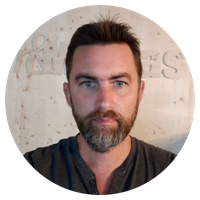
Jordi Soudé (SciencesCom 07), Editor
Going international: follow the guides!
.png)
Heading abroad to pursue your studies or start your first job… This is a project that appeals to many students and young graduates alike, but which country to choose? Also, which questions should you ask before taking the plunge? Audencia offers a series of guides to help you choose. Katie François, in charge of the project, tells us more.
“Four years ago, the careers team at Audencia were the driving force behind this project with the publication of “Go International”. At the time, the aim was to show French students that an international career was well within their grasp, Katie explains. Two years later, we designed the “Go France” version, aimed this time more towards the international students so as to give them some insights into how best to settle in France.”
This new aid features: expert HR advice in the first part, followed by testimonials given by alumni from across the globe who have themselves settled in France.
New editions
In 2022, this collection will be supplemented with an updated version of “Go France” together with two brand-new editions: “Go Netherlands” and “Go China”. “These publications will be in the same vein as the Guide du Routard (a famous French tourist guide)” Katie adds. They will all be along the same lines: you’ll find DHR advice from each of the countries and twenty or so testimonials from alumni working there.”
Why these destinations in particular?
“The Netherlands because we realised that it’s a very appealing location for young alumni, with English used as the corporate language and some wonderful companies based there too. China is of key strategic significance for Audencia: after France, China is host to our second largest alumni community.”
Giving keys
For all our editions, there are multiple objectives:
“Giving students and young alumni the keys to finding relevant references to help them source their internship, or land a job in their country of choice, to share their experiences, as well as showcase companies through their HR experts who may potentially go on to recruit our alumni.”
What’s more, the collection will likely be extended, following the release of these new publications: future guides dedicated to Germany and the UK are currently under discussion.
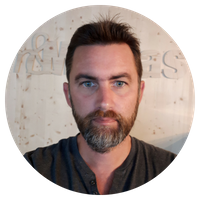
Jordi Soudé (SciencesCom 07), Editor
2021, a year choc-full of events in China!
.jpg)
Christmas is fast drawing near. The ideal time to round off the year 2021 by shining a light on what has been an especially fruitful year, full of events in China. Indeed, over the past 12 months, no fewer than 21 in-person gatherings and 8 webinars have been hosted. We take a look back at all the highlights and special moments that have enabled our 5 Chinese communities to stay connected to one other.
“This has been a particularly active year” boasts Cici Ting Liu, Head of International Alumni Relations and in charge of fostering and maintaining contact between the 5 communities present in China, representing some 1,500 individuals. It’s fair to say that after a year 2020 marked by the cancellation of almost all of our events, due to the COVID-19 epidemic (2 in-person events actually went ahead), it was high time to concoct a programme worthy of the name.
Two high points
Kicking off festivities, a luncheon was hosted in Shenzhen on 31 January, on the occasion of the Chinese New Year. Following on from this were some twenty further events. This year has been especially marked by two high points. Firstly: “Audencia Around The World” which, for its 3rd edition, stopped off in Beijing, Shanghai and Shenzhen, on 27 March this year, and then in Hong Kong on 29th and in Chengdu on 30th.
The October programming had a flavour all of its own: the joy of reunions. Four of our alumni communities put on a series of events: an afterwork held on 7 October in Hong Kong, the reception of the Audencia Alumni team at the French CCI in China on 21 in Shanghai, a dinner in Shenzhen, as well as a visit of the Van Gogh Alive exhibition in Pekin two days later. In total, over 100 alumni joined in. This was a golden opportunity to create some unforgettable memories.
Rounding off this festive year in style, on 6 December in Hong Kong a special Christmas evening reception was held.
Keeping connections going
Also featuring on this year’s programme: four alumni-only webinars on a number of themes ranging from human resources to digital transformation, as well as e-commerce and sustainable development practices. Meanwhile, four others were organised for students from Shenzhen (SABS) and Chengdu (SWUFE), with the aim of presenting alumni and career-centre offers as well as getting a taste for the world of FinTech.
Planning for 2022 is currently underway. The team hopes to make it over to China. Our next edition of Audencia Around The World, scheduled to take place from 17 to 24 March, will be “a golden opportunity” to go and meet with alumni, anticipates Cici.

Florence Falvy, Editor
Alumni engaged in furthering global solidarity
.jpg)
Again this year, the Audencia Foundation is launching its end-of-year campaign in support of our most vulnerable students, with the hope of raising €50,000. This remains both an ambitious and realistic target, given the 50 % rise in contributions made by private individuals over the last two years, as registered by the Foundation.
Since its very creation, the Foundation has been committed to helping students to pursue their studies, no matter their social and geographical background, enabling the Audencia community to rally together and provide funding to deploy concrete action. It is thanks to the generosity of your network – that now boasts an incredible 30,000 alumni – that we have been in a position to award upwards of 700 grants to deserving students this year, both French and international students, from countries with reduced purchasing power or families currently facing financial difficulties, as well as to help benefit our student entrepreneurs.
Over recent months, the Audencia Foundation has reacted swiftly to the challenges caused by the Covid crisis. In the setting up of a special solidarity fund, the Foundation has enabled the school alumni network to respond to the call and stand in solidarity and support of students. The funding of measures aimed at improving student life has so far supported 130 beneficiaries who have found themselves severely impacted by the pandemic.
It is within this context that the Foundation set up the end-of-year campaign. Thanks to your kind donations, the €50,000 will be shared out across three funds:
- The solidarity fund (€20,000). The average student’s living costs now stands at €600 per month and the needs of students in financial difficulty have grown by 60% within Audencia in 2021. The isolation and financial difficulties facing students, exascerbated by the health crisis, simply won’t go away when things get back to normal. Launched in 2020, the solidarity fund must remain a permanent commitment to meet the challenges of making sure everyone gets an equal chance and provide support for student living expenses.
- International Scholarships (€20,000). Some 47% of students don’t carry out an international internship owing to the high living costs involved. International internship scholarships seek to remedy this. In the same vein, excellence grants are also helping students from countries of origin with reduced purchasing power.
- The Entrepreneurship Scholarships (€10,000). In supporting student entrepreneurs to cover their living costs at the start of their project, these scholarships provide them with the practical support they need.
Whist donations made to the sum of €200 will receive a complementary gift of a plastic-free kit produced by the brand of natural household products Les Petits Bidons (founded in 2017 by Cyril Neves, GE 17), every donation really does count, no matter the amont!
For more information on tax-deductible charitable donations and to make a donation to the fund, head to our page at Helloasso.

Guy-Pierre Chomette, Editor
Personal life, professional life: a duo under the microscope
.jpg)
Thibaut Bardon, appointed academic director at the school, shares with us his reflections on the way areas of our personal life – such as sport, philosophy, art and culture – can inspire us in our professional life.
On what basis do you consider that personal life / work life interaction warrants serious study?
Thibaut Bardon: During the 1970s, work was essentially considered to be a source of income. Companies operated as fairly bureaucratic systems and personal fulfilment took place outside the workplace. From the 1980s onwards, we saw a management approach starting to emerge that was more based on trust, empowerment and job enrichment. Our outlook to work has changed, and is now regarded as a place and a time of potential professional fulfilment. For around a decade, we have seen the rise of a new phenomenon. An increasing number of people would like work to equally be a source of personal enrichment and seek to harmonise who they are with what they do. The boundary between our personal life and our professional life is starting to become blurred, some might say obsolete.
How are companies responding to this shift?
Thibaut Bardon: There is no shortage of initiatives aimed at encouraging employees to bring elements of their personal life to work. The development of chief happiness officers, as well as afterworks, or sharing brunches with colleagues are all part of this, albeit at the risk of stigmatising those, otherwise competent, workmates who have no desire of seeing their work-life boundaries being eroded. Some managers are taking things to the next level, by embracing the business philosophy of liberated companies, where the unleashing of each individual’s potential and the flourishing of their teams has become an end in itself. Moreover, in the wake of the health crisis, it’s important to highlight that teleworking has developed tremendously, speeding up this phenomenon where it is now hard to distinguish where personal life ends and professional life begins.
In this context, what kind of projects are being developed at the school on this theme?
Thibaut Bardon: At Audencia, there’s an entire ecosystem of faculty staff currently working on this very theme and approaching it from various different angles. These analyses are looking into the way in which these various areas of life – such as sport, philosophy, and popular culture – can help advance management and leadership practices. We already have a great body of work on this subject matter. We are seeking to create more synergies between this body of research by looking to set up a chair that would further bring together companies, civil society members, public organisations, and also graduates of the school.

Guy-Pierre Chomette, Editor
Sport at the service of corporate performance
.jpg)
Corporate sport has long been approached from the sole angle of employee health and well-being but it is now driving a mini revolution against the backdrop of the current health crisis that is shaking the very foundations of these professional associations. For Gurvan Heuzé (MOS 13) from the Fédération Française du Sport en Entreprise (French Federation for Company Sport), the practice of sport will become one of the pillars of the “world after Covid”.
“Sport is a passion and it is also ours at the FFSE ; but a company is a daily reality,” Gurvan explains. “So, over recent years, we’ve being trying to solve a very simple equation: 100% of business leaders implementing company sports programmes would recommend this to their counterparts, 80% of employees would like to take up a company sport organised within their firm, and yet, ultimately only 10 to 20% of employees are actually ever offered the chance to practice a sport. How so?”
In effect, it’s difficult to comprehend the roadblocks when all of the feedback from the field – quantitative studies are few in number – underline the real impact on corporate performance, with a reduction in absenteeism and improved employee engagement. Although the spirit is willing, putting this into practice remains more of a complex issue.
“Sport isn’t the number one priority for business leaders,” Gurvan adds. Their priority is their own activity and their own value creation. Sport is just an added extra that has to fit in easily with their everyday corporate life. Hence, up to now, the offer was patchy and complex, with a host of poorly-referenced actors all charging different rates. We wanted to change this, by setting up @Work, a digital platform that simplifies the way companies and their staff can access regular sporting activities, ones that are safe and wide ranging, by bringing sports providers together under the same umbrella.”
Will digital technology give us the key to the equation?
“Undoubtedly, replies Gurvan, and even more so now, both during as well as in the aftermath of the health crisis. Issues with mobility, teleworking, as well as professional disenchantment and psychological fragility, that were already with us prior to the pandemic, are currently going through the roof. Today, businesses are calling on our help and our digital offering provides them with support in the runup to them bringing in the activities. Ultimately, it all comes back to a shared activity, regularly coming together, and competition-leisure projects, or indeed competition, period.”
The next step is often them switching to a club that is affiliated to a delegated federation so as to incorporate this new practice into their everyday life.

Florence Alix-Gravellier, Editor
On the slow eco-tourism track with Bloom Campers
.png)
Bloom Campers.This is the name of a project that is part of an environmentally-responsible approach, and along the same lines as Audencia’s commitment to the environment. We meet with the company’s co-founder Nicolas Gumy (Bachelor 18).
For the past three years, Nicolas Gumy has been the head of sales development and marketing at Greenfib (100% organically-sourced material), and has now decided to go part-time in order to focus more time on his own project. As, for this former student of the Audencia Bachelor, the remainder of his time is spent working on growing Bloom Campers, a Simplified Joint Stock Company (SAS), founded in April 2021 in Vannes, alongside his friend Agathe.
A slower and greener means of travel
This is indeed the 24-year-old entrepreneur’s pledge. After buying his own former EDF-type van in 2019, and then converting it into a prototype and eco-designed abode in preparation for a summer road trip, it dawned on Nicolas that this mode of transport’s carbon footprint was far from neutral, with a gas consumption of 12 litres/100km. This sparked the idea of picking up vintage 70s and 80s combi vans and switching their combustion engines for an electric version, in partnership with the Rétrofuture company, before kitting them out for new adventures (a bed, a top-pop roof, a kitchenette, solar panels, etc.). Thus, Bloom Campers was born. Indeed, this project was the winner of the people’s choice award at the Audencia AUDACE contest.
When questioned on its potential to reduce carbon emissions, he explains:
“A retrofit van emits 61% less greenhouse gas than a vehicle with an internal combustion engine, and saves 56% of CO2 emissions compared to the manufacturing of a new electric vehicle.”
Things are certainly speeding up
While a participatory fundraising campaign on the WeDoGood platform has just been sealed, with a target set at 100,000 euros, Nicolas is already turning his attention towards his next strategic step: the opening of their retrofit combi-van rental agency in Vannes, with a fleet of 6 Volkswagen vehicles, set to go ahead in the first half of 2022. At the same time, a booking platform will be created. In addition to this, provision is being made to offer customers “off-the-beaten-track, unique experiences (including nature, sport, culture, and more)”, in partnership with actors who are also involved in the tourist trade and will provide clients with electric charging stations.
So, what are his ambitions? “To have 14 agencies all over France (either owned or as part of a franchise) all opened within the next five-year period.” Avenues are already being explored in Bordeaux and Nantes. This will generate 25 new job creations. Furthermore, he’s currently gearing up to take on a new employee with a technical background, who will be put in charge of sourcing, planning and the coordination of the electric retrofits. All this is a sure-fire sign that Bloom Campers is tracking its own roadmap to success.

Florence Falvy, Editor
Recent publications
.jpg)
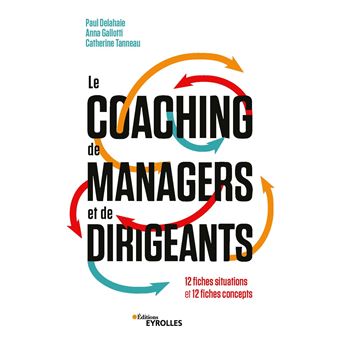
“Coaching de managers et de dirigeants” (Coaching for managers and business leaders)
Through the use of “situation” and “concept” factsheets, Paul Delahaie (SciencesCom 85) highlights the coaching scenarios of business leaders and managers. Based on the premise that one in every two leaders require the support of a coach at some point in their career, this book provides an overview of management scenarios, analyses them, comments on them, and provides the appropriate range of concepts and tools for managers to feel supported during key moments in their career.

“La Prophétie d'Elhem - Le secret des Pierres Vivantes” (The Prophesy of Elhem - The secret of the Living Stones)
In this heroic fantasy novel for young readers, Lucie Taupenas (GE 14) embarks us on a journey into a world of magic and supernatural phenomena. In this first volume, the reader sets out on a quest filled with adventure and battles on every page, into sacred and magical lands.
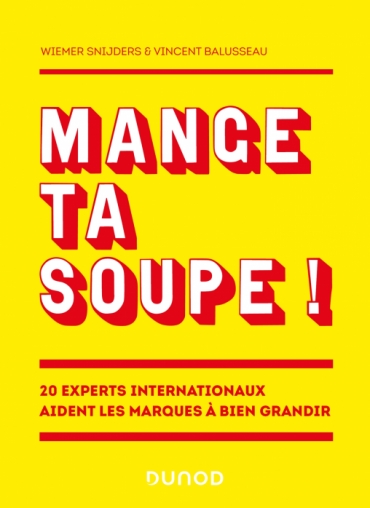
“Mange ta soupe” (Eat your soup)
A book by Vincent Balusseau (Professor of Marketing at Audencia Business School) is writing for today's marketer, who, in the context of a constantly shifting digital ecosystem, is in need of a compass to help them adjust their strategy.
“Mange ta soupe” brings together the contributions made by the leading international experts in marketing, communication, and advertising, and provides a series of critical analyses and practical guidance on key issues: the great laws of brand growth, social media marketing, digital advertising in the era of machine learning and platforms, the contributions of behavioural economics, neuroscience marketing, and more.
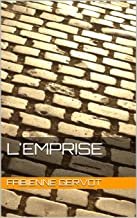
“L'emprise”
In her first novel, Fabienne Gervot (SciencesCom 94) tells us the story of Edouard, who grows up in a bourgeois family in the wealthy districts of Nantes. As an adolescent, he gambles with life and gradually destroys the life of his parents. Until one day, his quest takes on new meaning…
This novel portrays the contrasting perspectives of a mother and her son, inviting us on an inner journey back through time, travelling between the 1980s and the end of the millennium.
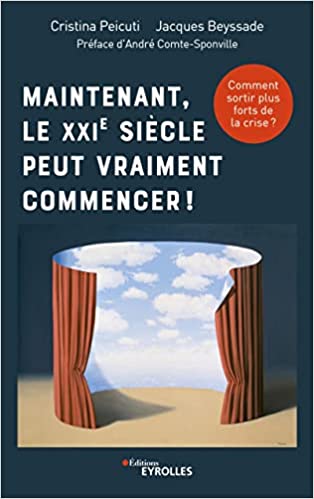
“Maintenant le XXIe siècle peut vraiment commencer. Comment sortir plus forts de la crise.” (Now the XXI century can really get started. How to come out of the crisis stronger.)
Cristina Peicuti (GE 05) and Jacques Beyssade explore and analyse the mechanisms of economic crises (that of 1929, of 2008 and also the more recent COVID crisis) and examine the role that bankers and economists can play in both triggering and resolving crises.
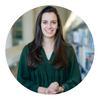
Albane Guillonneau, on behalf of the Audencia Alumni team
Your network
A huge thank you for taking the time to read this 18th edition of The Mag, our final issue for the year 2021.
We hope you’ve enjoyed following all the wonderful adventures of our alumni as much as we have.
If you have any ideas or suggestions to share with us, please send an email to audenciaalumni@audencia.com or simply post them on our social networks and we’ll be sure to take your views on board!
By the way, feel free to follow our Audencia Alumni LinkedIn page to keep up to speed with all our latest news and events!
We look forward to seeing you back here in April for the next edition of The Mag.
In the meantime, we’d like to extend our heartfelt wishes for a truly wonderful festive holiday season and success in all your projects over the coming year.
Share
More info on Together
More emags
- The M@g : Audencia's Alumni Magazine, #17 - June 2021 - 17#
- The M@g : Audencia's Alumni Magazine, #16 - March 2021 - 16#
- The M@g : Audencia's Alumni Magazine, #15 - December 2020 - 15#
- The M@g : Audencia's Alumni Magazine, #14 - September 2020 - 14#
- The M@g : Audencia's Alumni Magazine, #13 - May 2020 - 13#
- The M@g : Audencia's Alumni Magazine, #12 - February 2020 - 12#
- The M@g : Audencia's Alumni Magazine, #11 - December 2019 - 11#
- The M@g : Audencia's Alumni Magazine, #10 - October 2019 - 10#
- The M@g : Audencia's Alumni Magazine, #10 - Octobre 2019 - 10#
